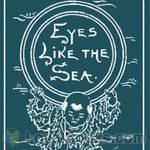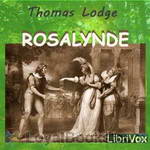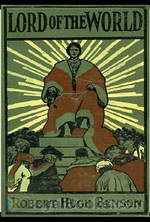|
Books Should Be Free Loyal Books Free Public Domain Audiobooks & eBook Downloads |
|
|
Books Should Be Free Loyal Books Free Public Domain Audiobooks & eBook Downloads |
|
Top Authors |
|---|
|
Book type:
Sort by:
|
By: Glenn D. Bradley (1884-1930) | |
|---|---|
 The Story of the Pony Express
The Story of the Pony Express
The Story of the Pony Express offers an in depth account behind the need for a mail route to connect the eastern U.S. with the rapidly populating west coast following the gold rush of California, the springing up of lumber camps, and all incidental needs arising from the settling of the western frontier. Here we learn of the inception of the Pony Express, its formation, successes, failures, facts, statistics, combined with many anecdotes and names of the people who were an integral part of this incredible entity which lasted but less than two years, yet was instrumental in the successful settlement of two thirds of the land mass comprising the expanding country... | |
By: Mór Jókai (1825-1904) | |
|---|---|
 Eyes Like the Sea
Eyes Like the Sea
He was a painter, a poet, a novelist. He lived during the Hungarian revolution and his love of freedom meant his life was often in peril. She was his first love, this girl with the eyes like the sea. She was at heart noble, good and loving. What an excellent lady might have been made out of this woman, if she had only met with a husband who, in the most ordinary acceptance of the word, had been a good fellow, as is really the case with about nine men out of every ten. But she always managed to draw the unlucky tenth out of the urn of destiny... | |
 'Midst the Wild Carpathians
'Midst the Wild Carpathians
| |
 Tales from Jókai
Tales from Jókai
Móric Jókay de Ásva, known as Mór Jókai or Maurus Jokai, was a Hungarian dramatist and novelist. He was a very prolific writer from an early age and wrote hundreds of novels, novellas, and short stories in his lifetime. The nine stories in this selection tell about hard times in Eastern Europe, especially in Hungary (Jokai was involved in the Hungarian uprising of 1848), as well as of ancient superstitions and folk lore. In the novella "The City of the Beast", Jokai gives his version of the sinking of Atlantis. | |
 Black Diamonds
Black Diamonds
| |
 The Golden Age in Transylvania
The Golden Age in Transylvania
| |
 Halil the Pedlar A Tale of Old Stambul
Halil the Pedlar A Tale of Old Stambul
| |
 Manasseh A Romance of Transylvania
Manasseh A Romance of Transylvania
| |
 The Lion of Janina The Last Days of the Janissaries
The Lion of Janina The Last Days of the Janissaries
| |
 Timar's Two Worlds
Timar's Two Worlds
| |
 In Love With the Czarina and Other Stories
In Love With the Czarina and Other Stories
| |
 A Hungarian Nabob
A Hungarian Nabob
| |
 The Day of Wrath
The Day of Wrath
| |
 The Nameless Castle
The Nameless Castle
| |
 The Green Book Freedom Under the Snow
The Green Book Freedom Under the Snow
| |
 The Yellow Rose
The Yellow Rose
| |
 The Baron's Sons
The Baron's Sons
| |
 Debts of Honor
Debts of Honor
| |
 The Corsair King
The Corsair King
| |
 Told by the Death's Head A Romantic Tale
Told by the Death's Head A Romantic Tale
| |
 Hungarian Sketches in Peace and War Constable's Miscellany of Foreign Literature, vol. 1
Hungarian Sketches in Peace and War Constable's Miscellany of Foreign Literature, vol. 1
| |
 The Poor Plutocrats
The Poor Plutocrats
| |
 Pretty Michal
Pretty Michal
| |
 The Strange Story of Rab Ráby
The Strange Story of Rab Ráby
| |
 A Christian But a Roman
A Christian But a Roman
| |
 Dr. Dumany's Wife
Dr. Dumany's Wife
| |
 Peter the Priest
Peter the Priest
| |
By: Allan Pinkerton (1819-1884) | |
|---|---|
 The Expressman and the Detective
The Expressman and the Detective
Allan Pinkerton (1819-1884), a Scotsman by birth and a barrel-maker by trade, settled in Chicago in its infancy and founded the Pinkertons, the world's first detective agency. Though events associated with the agency after his death have tarnished the name, Pinkerton himself was one of the original human rights advocates. He was a dear friend to John Brown, an advisor to Abraham Lincoln, and 80 years ahead of his time in hiring female detectives. He was also stubborn, irascible, and an egomaniac... | |
 The Burglar's Fate And The Detectives
The Burglar's Fate And The Detectives
| |
 The Spiritualists and the Detectives
The Spiritualists and the Detectives
| |
 The Somnambulist and the Detective The Murderer and the Fortune Teller
The Somnambulist and the Detective The Murderer and the Fortune Teller
| |
 The Spy of the Rebellion Being a True History of the Spy System of the United States Army during the Late Rebellion,
The Spy of the Rebellion Being a True History of the Spy System of the United States Army during the Late Rebellion,
| |
 Bucholz and the Detectives
Bucholz and the Detectives
| |
 Mississippi Outlaws and the Detectives Don Pedro and the Detectives; Poisoner and the Detectives
Mississippi Outlaws and the Detectives Don Pedro and the Detectives; Poisoner and the Detectives
| |
By: Thomas Lodge | |
|---|---|
 Rosalynde or, Euphues' Golden Legacie
Rosalynde or, Euphues' Golden Legacie
This novel, which Shakespeare adapted in his pastoral comedy As You Like It, is the archetypal pastoral adventure. Two young persons of high birth, who have recently lost their fathers (one to death, one to banishment), fall in love but are separated almost at once and forced to flee to the Forest of Arden. There they meet again, but as Rosalynde is disguised for safety as a boy, named Ganymede, her lover Rosader does not recognize her. Once Rosader has confided his love to Ganymede, they play a game in which the "boy" poses as Rosalynde to give Rosader practice in wooing... | |
By: William Beckford (1760-1844) | |
|---|---|
 The History of the Caliph Vathek
The History of the Caliph Vathek
This is one of the earliest Gothic novels. The Caliph Vathek is one of the wealthiest and most powerful men who ever lived. But this is not enough for him. He seeks also forbidden knowledge, and doesn't care who he has to hurt to get it. Aided by his depraved mother Carathis, Vathek proceeds to damn himself, and those around him. (Introduction by MorganScorpion) | |
By: Jakob Wassermann (1873-1934) | |
|---|---|
 The Goose Man
The Goose Man
| |
By: William Beckford (1759-1844) | |
|---|---|
 Dreams, Waking Thoughts, and Incidents
Dreams, Waking Thoughts, and Incidents
| |
By: Robert Sterling Yard (1861-1945) | |
|---|---|
 The Book of the National Parks
The Book of the National Parks
Robert Sterling Yard (February 1, 1861 – May 17, 1945) was an American writer, journalist, and wilderness activist. Born in Haverstraw, New York, Yard graduated from Princeton University and spent the first twenty years of his career in the editing and publishing business. In 1915, he was recruited by his friend Stephen Mather to help publicize the need for an independent national park agency. Their numerous publications were part of a movement that resulted in legislative support for a National Park Service (NPS) in 1916... | |
By: Gautama Buddha (563-483 BC) | |
|---|---|
 Der Wahrheitpfad (Dhammapadam)
Der Wahrheitpfad (Dhammapadam)
Das Dhammapada ist eine Anthologie von Aussprüchen des Buddha. Dabei sind die Verse so ausgewählt, dass sie den Kern der Lehre des Buddha wiedergeben. Es ist einer der bekanntesten Texte dieser Lehre und findet seine weiteste Verbreitung im südlichen Buddhismus. Dort begleitet es die Schüler des Buddha vom Anfang bis zum Ende ihres Pfades. Darüber hinaus ist es ein Meisterwerk sowohl der frühen buddhistischen Literatur als auch der indischen Tradition des Karvya (Belle Lettre). | |
By: Eddie Rickenbacker (1890-1973) | |
|---|---|
 Fighting the Flying Circus
Fighting the Flying Circus
This is the WWI memoirs of Medal of Honor winner, Capt Eddie Rickenbacker. He fought in and eventually became commander of the 94th "Hat-in-the-Ring" Squadron, which ended the war with the highest number of air victories of any American squadron. The circus mentioned in the title refers to the German squadron commanded by the famous Red Baron, Manfred von Richthofen. (Introduction by Brett W. Downey) | |
By: Robert Hugh Benson (1871-1914) | |
|---|---|
 Lord of the World
Lord of the World
“Mr. Benson sees the world, four or five generations hence, free at last from all minor quarrels, and ranged against itself in two camps, Humanitarianism for those who believe in no divinity but that of man, Catholicism for those who believe in no divinity but that of God.” This apocalyptic novel from the early 1900's is sometimes deemed one of the first modern dystopias. | |
 Come Rack! Come Rope!
Come Rack! Come Rope!
Come Rack! Come Rope! is a historical novel by the English priest and writer Robert Hugh Benson, a convert to Catholicism from Anglicanism. Set in Derbyshire at the time of the Elizabethan persecution of Catholics, when being or harboring a priest was considered treason and was punishable with death, it tells the story of two young lovers who give up their chance of happiness together, choosing instead to face imprisonment and martyrdom, so that "God's will" may be done.The book was written nearly nine years after Benson's reception into the Catholic Church... | |
 Lourdes
Lourdes
| |
 Paradoxes of Catholicism
Paradoxes of Catholicism
| |
 None Other Gods
None Other Gods
| |
 Dawn of All
Dawn of All
In a former book, called "Lord of the World," I attempted to sketch the kind of developments a hundred years hence which, I thought, might reasonably be expected if the present lines of what is called "modern thought" were only prolonged far enough; and I was informed repeatedly that the effect of the book was exceedingly depressing and discouraging to optimistic Christians. In the present book I am attempting -- also in parable form -- not in the least to withdraw anything that I said in the former,... | |
 The King's Achievement
The King's Achievement
| |
 Oddsfish!
Oddsfish!
| |
 The History of Richard Raynal, Solitary
The History of Richard Raynal, Solitary
| |
By: Frank Chouteau Brown | |
|---|---|
 Letters and Lettering A Treatise With 200 Examples
Letters and Lettering A Treatise With 200 Examples
| |
By: Elizabeth Inchbald (1753-1821) | |
|---|---|
 A Simple Story
A Simple Story
The story could really have been simple: Miss Milner, who is admired for her beauty and charm, could have been a socialite, marry a respectable and good looking man and be happy in the standards of her time. But if it was so, why would there be a book? Miss Milner, beautiful and charming as she is, announces her wish to marry her guardian, a catholic priest. But women in the 18th century do not declare their wishes or speak about their passions, and- after all- he is a catholic priest… And if he finds a way to marry her, is this her road to happiness? | |
By: Bahá’u'lláh | |
|---|---|
 The Persian Hidden Words
The Persian Hidden Words
Kalimát-i-Maknúnih or The Hidden Words is a book written in Baghdad around 1857 by Bahá’u'lláh, the founder of the Bahá’í Faith. This work is written partly in Arabic and partly in Persian. The Hidden Words is written in the form of a collection of short utterances, 71 in Arabic and 82 in Persian, in which Bahá’u'lláh claims to have taken the basic essence of certain spiritual truths and written them in brief form. Bahá’ís are advised by `Abdu’l-Bahá, the son of Bahá’u'lláh to read them every day and every night and to implement its latent wisdom into their daily lives... | |
By: Lucius Apuleius | |
|---|---|
 Metamorphosis or The Golden Ass
Metamorphosis or The Golden Ass
The Metamorphosis, also known as The Golden Ass, is one of the very few novels of the Ancient World that survived to our days; one of the two novels of Roman Literature that we can still read; and the only one preserved in its entirety (the other one being the extremely fragmentary Satyricon). The story of the Metamorphosis, the tale of a man turned into a donkey that goes through many adventures to become a man again, inspired many other similar ones later on. However, more than just the plot, the style of the Golden Ass also made it famous... | |
By: Mary E. Wilkins Freeman (1852-1930) | |
|---|---|
 Evelina's Garden
Evelina's Garden
This is a long short story from 1899, approximately 95 minutes more or less, about a mysterious woman living virtually alone on the outskirts of a small New England town in a mansion with a magnificent garden. (Introduction by BellonaTimes) | |
By: Lucius Apuleius (125?-180) | |
|---|---|
 The Golden Asse
The Golden Asse
| |
 The Apologia and Florida of Apuleius of Madaura
The Apologia and Florida of Apuleius of Madaura
| |
By: Anna Green Winslow (1759-1779) | |
|---|---|
 Diary of Anna Green Winslow A Boston School Girl of 1771
Diary of Anna Green Winslow A Boston School Girl of 1771
| |
By: Kate Greenaway (1846-1901) | |
|---|---|
 Mother Goose or the Old Nursery Rhymes
Mother Goose or the Old Nursery Rhymes
| |
 Language of Flowers
Language of Flowers
| |